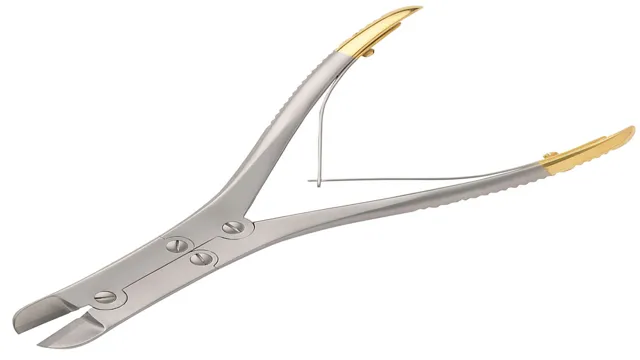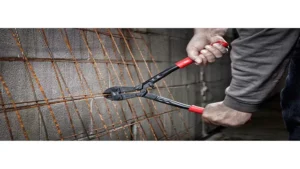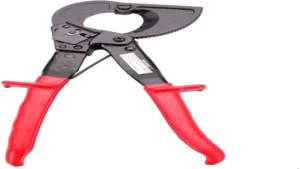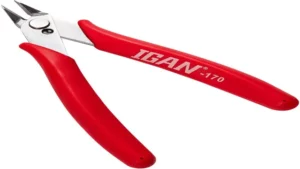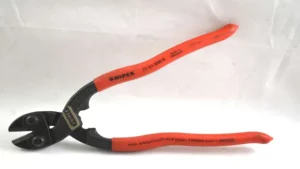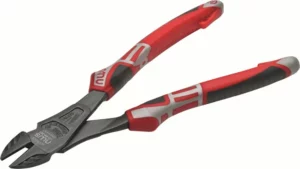Surgical steel is typically used for medical implants and surgical instruments, and is known for its strength, durability, and corrosion resistance. But when it comes to cutting it, the question arises: can wire cutters do the job? While wire cutters are a useful tool for cutting a variety of materials, surgical steel requires a bit more precision and specialized tools to cut through. In this blog post, we’ll take a closer look at the properties of surgical steel and explore the various cutting tools that are best suited for the job.
Whether you’re a healthcare professional or just curious about the world of metallurgy, you won’t want to miss this informative and engaging post!
Understanding Surgical Steel
Surgical steel is a highly durable and corrosion-resistant material commonly used in medical equipment and jewelry. It contains a mixture of metals, including chromium and nickel, that give it its unique properties. While surgical steel is known for its strength, it’s still possible to cut it with the right tool.
Wire cutters are a versatile tool commonly used for cutting wires and small metal materials. When it comes to surgical steel, however, it’s important to use high-quality wire cutters designed for cutting through strong metals. Cheaper wire cutters may not have the strength required to cut through surgical steel, and may end up damaging the material or the tool itself.
Therefore, be sure to invest in high-quality wire cutters that specifically state they can cut through surgical steel in order to get the job done effectively.
Composition and Properties
If you’ve ever had surgery, you may have wondered what kind of metal was used in your surgical instruments. Chances are, it was surgical steel—that versatile, durable metal that’s commonly used in the medical field. But what exactly is surgical steel, and what makes it so special? Surgical steel is a type of stainless steel that’s specifically designed for use in medical applications.
It’s made up of a combination of iron, chromium, and nickel, along with other trace elements that enhance its properties. One of the key features of surgical steel is its resistance to corrosion—this is important because it ensures that surgical instruments are easy to clean and won’t rust or deteriorate over time. In addition to its corrosion resistance, surgical steel is also incredibly hard and durable.
This makes it ideal for use in surgical instruments, which need to be strong enough to withstand repeated use and harsh sterilization processes. Surgical steel is also non-magnetic, which means it won’t interfere with sensitive medical equipment like MRI machines. Overall, surgical steel is a highly specialized type of metal that’s essential to modern medicine.
Its unique properties make it an ideal choice for a wide range of medical devices and instruments, and its durability and resistance to corrosion ensure that these devices will continue to provide safe and effective care for years to come.

Common Applications
When it comes to surgical procedures, choosing the right materials is of utmost importance to ensure success and minimize complications. This is where surgical steel comes into play, as it is a popular choice for a wide range of medical applications. Surgical steel is also known as medical-grade stainless steel, and it is a type of alloy that is highly resistant to corrosion, rust, and staining.
This makes it ideal for use in medical instruments and implants that need to maintain their strength, durability, and hygiene over time. Some common applications of surgical steel include surgical instruments, orthopedic implants, dental instruments, and medical equipment. Additionally, surgical steel is biocompatible, which means that it does not trigger an immune response or cause adverse reactions in the human body.
This makes it a safe and reliable choice for patients who undergo surgical procedures or use medical devices made from surgical steel.
Types of Wire Cutters
Can wire cutters cut surgical steel? It depends on the type of wire cutters you’re using. There are various types of wire cutters available in the market, including diagonal cutters, end cutters, and needle-nose pliers. However, not all wire cutters are designed to handle surgical steel.
Surgical steel is a type of stainless steel that is known for its strength and corrosion resistance, which makes it a popular material for use in medical devices and surgical instruments. To cut surgical steel, you need wire cutters that are specifically designed for the task, such as surgical-grade wire cutters. These wire cutters are made from high-quality materials and are designed to cut through even the hardest materials with ease.
So, while some wire cutters may be able to cut through softer metals, it’s important to choose the right tool for the job when working with surgical steel.
Standard Wire Cutters
Standard wire cutters are an essential tool for electrical works. They come in different types designed to handle specific needs. As a professional electrician, it’s important to own different kinds of cutters or pliers to ensure that you’re always prepared for any task at hand.
Some of the common types of wire cutters include diagonal pliers, needle-nose pliers, linesman pliers, and bolt cutters. Diagonal pliers are known for their sharp and angled blades that can easily cut through different types of wires. Needle-nose pliers, on the other hand, have long and narrow jaws that make them perfect for working in tight spaces.
Linesman pliers are versatile cutters that can handle various tasks, from bending and twisting wires to cutting and crimping. Bolt cutters, on the other hand, are heavy-duty cutters that can cut through thick wires and bolts. Having a good set of wire cutters can make a huge difference in your work, whether you’re a professional electrician or a DIYer.
With the right cutter, you can efficiently and safely cut through wires without damaging them or injuring yourself. Make sure to choose the right type of wire cutter for your specific needs to get the best results.
Bolt Cutters
Bolt Cutters If you’re in the market for a wire cutter, you’ll need to know about the types of wire cutters available. Among them, bolt cutters are the most commonly used cutters for heavier wires and bolts. This versatile tool can cut through thick wires, chains, and even padlocks! Bolt cutters come in various sizes, with 14- to 42-inch models being the most common.
The mini bolt cutter is perfect for cutting small wires, while the larger models are ideal for big jobs like cutting heavy chains. Keep in mind that when using a bolt cutter, you’ll need to exert a lot of force to get through tougher materials. Before buying, ensure that the cutter you choose has blades of high-carbon steel and comfortable handles that can withstand the pressure.
When you have the right bolt cutters, you can take on any wire or bolt cutting task with ease!
Diagonal Cutters
Diagonal cutters are a type of wire cutter that is commonly used for cutting through wires and cables. They are distinguished by their angled cutting edge, which makes them ideal for cutting in tight spaces or at odd angles. There are several other types of wire cutters, each of which has its own unique features and benefits.
For example, needle-nose pliers are a popular choice for fine or delicate work, while bolt cutters are designed for cutting through thick, heavy materials. Depending on the job at hand, different types of wire cutters may be more appropriate. It’s important to choose the right tool for the job to ensure that you achieve the best results.
If you’re not sure which type of wire cutter to use, you can always ask for advice at your local hardware store or consult with a professional electrician or technician. Remember, using the wrong tool for the job can be not only frustrating but also potentially dangerous. So take your time, do your research, and invest in a high-quality wire cutter that will stand the test of time.
Cutting Surgical Steel with Wire Cutters
If you’re wondering whether wire cutters can cut through surgical steel, the answer is yes, but it depends on the type of surgical steel and the type of wire cutters being used. Surgical steel is a term used to describe a variety of different alloys that are commonly used in medical instruments and surgical implants. While some types of surgical steel are relatively soft and easy to cut with wire cutters, others are much harder and more difficult to work with.
If you’re looking to cut surgical steel with wire cutters, it’s important to use the right type of wire cutters for the job. Depending on the thickness and hardness of the steel, you may need to use heavy-duty cutters with sharp, durable blades. It’s also important to use the appropriate amount of force when cutting through the steel, as applying too much pressure can cause the blades to bend or break.
In summary, wire cutters can be used to cut surgical steel, but it’s important to use the right type of cutters and apply the appropriate amount of force. If you’re unsure about which type of wire cutters to use or how much force to apply, it’s always a good idea to consult with a professional before attempting to cut surgical steel on your own.
Factors to Consider
When considering cutting surgical steel with wire cutters, there are several factors to keep in mind. First and foremost, it is important to make sure that the wire cutters are sharp enough to effectively cut through the tough material of surgical steel. Additionally, it is important to choose the right size of wire cutters for the job at hand, as larger wire cutters may be necessary for thicker pieces of steel.
It is also important to ensure that the wire cutters are designed for use on surgical steel, as using the wrong type of cutters can lead to damage or contamination of the material. Overall, it is best to consult with a professional or experienced metalworker to determine the best course of action when cutting surgical steel with wire cutters.
Tips for Successful Cutting
“Surgical Steel Wire Cutters” When it comes to cutting surgical steel with wire cutters, there are a few tips that can help ensure a successful outcome. First and foremost, it’s important to choose the right type of wire cutters for the job. Surgical steel wire cutters are specifically designed for cutting through tough metals, so investing in a high-quality pair is key.
Additionally, it’s important to approach each cut with care and precision, taking the time to align the cutters properly and exert just the right amount of force. Finally, it’s important to properly maintain wire cutters, keeping them clean and in good working order to ensure they are ready for use whenever needed. By following these tips, cutting surgical steel with wire cutters can be a smooth and straightforward process, delivering the results you need without any unnecessary hassle or frustration.
Conclusion
As it turns out, the answer to the question “can wire cutters cut surgical steel?” is a resounding…
it depends! While some heavy-duty wire cutters might be up to the task, surgical steel is a notoriously tough material that requires specialized tools and expertise to work with. So while your standard pair of wire cutters might not make the cut when it comes to surgical steel, don’t let that dull your appreciation for the hardworking tools in your trusty toolbox. After all, they’re still capable of many incredible feats.
..just maybe not slicing through steel with surgical precision.
“
FAQs
1. Can wire cutters cut through surgical steel? A: It depends on the type of wire cutters and the thickness of the surgical steel. While some wire cutters may be able to cut through thin surgical steel, it is not recommended as it can damage the surgical instrument. 2. Is surgical steel difficult to cut through? A: Yes, surgical steel is known for its strength and durability, which can make it difficult to cut through with standard tools. 3. What types of tools are recommended for cutting surgical steel? A: It is recommended to use high-quality surgical scissors or scalpels that are specifically designed for cutting surgical steel. 4. Can regular scissors be used to cut surgical steel? A: No, regular scissors are not recommended for cutting surgical steel as they are not strong enough and can damage the instrument. 5. How can I ensure that surgical steel instruments are being properly maintained? A: It is important to follow the manufacturer’s guidelines for cleaning and sterilizing surgical instruments to ensure they remain in good condition and are not damaged during the process. 6. Are there any risks associated with cutting surgical steel? A: Yes, there is a risk of damaging the surgical instrument or injuring yourself if you are not using the proper tools or technique. 7. Should I attempt to cut surgical steel myself, or leave it to a professional? A: It is recommended to leave the cutting of surgical steel to a professional, as they have the proper tools and training to handle the instrument safely and effectively.
